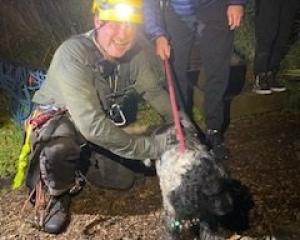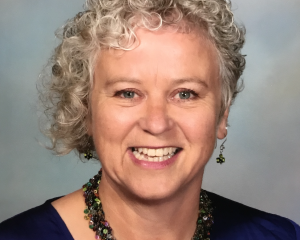The head of the police’s Youth Aid section in Dunedin has called for an overhaul of the system, which in its present form results in the most vulnerable young offenders falling through the cracks.

It comes as the latest police statistics show a rise in violent offending by teenagers and pre-teens.
His views have been echoed by top Dunedin youth advocate Brian Kilkelly, who says the system is leading the most violent and vulnerable youths into a life-long cycle of crime.
The latest numbers show a rise in assaults (4%), sexual assaults (6%), burglaries (21%) and robberies (55%) committed by people aged 19 or under in the Southern police district.
The shocking numbers revealed offenders between 5 and 9 were involved in assaults, burglaries and, in one case, sexual assault. Sergeant Rene Aarsen, head of Dunedin’s police Youth Aid, said the system was ill-equipped to cope with the most serious youth offending.
"That top 10% of our offenders, we are still not getting it right with them," he said.

"The Government needs to stand back and see what they are doing with some of these families.
"It’s got to start way back, when [children] are conceived."
Those working in the sector were frustrated intervention began when children became an issue rather than earlier in life, when real change could be effected
"It’s broken-record syndrome and I think the Government needs to take a different approach, because what we are doing isn’t working," he said.
"We need to be a bit more drastic with what we are doing with these young children.
"We can’t allow them to grow up in gang culture, in drug culture, in domestic violence — we need to intervene, not wait until they are 14 or 15."

The proportion of all those crimes committed by offenders in that age group had risen from the previous year.
Nationally, there was a 6% rise in Youth Court offenders last year compared with 2015 and there was also a 6% rise in the number of children in state care.
"We know those families; any agency will know who those families are," Sgt Aarsen said.
"In Youth Aid we just wait for them to come our way and for that 10% [of worst offenders] it’s not working.
"It’s a frustration because we want to do the best we can and turn them around, but the negative factors are too big and too far gone."
He supported the move for 17-year-olds to face Youth Court instead of adult court, as it gave agencies another year to work with them.
However, further resources were needed to tackle the issues.
He pointed to the closure of Dunedin’s Will St youth home as an example of the under-resourcing hampering the sector.
"Maybe we need a committee or a think-tank on how do we resource those top 10% of offenders," Sgt Aarsen said.
"It’s not just offenders, it’s their family and whanau. Everyone would have to admit we aren’t making a difference for that top 10%."
The Will St residence — managed by the Ministry for Vulnerable Children, Oranga Tamariki — hit headlines last year when it was revealed youth offenders were spending time in police custody or being transferred to youth justice centres as far away as Auckland as the house sat idle because caregivers had not been appointed to the facility.
Dunedin youth advocate Brian Kilkelly hit out at Child, Youth and Family at the time; and the government department — superceded by the Ministry for Vulnerable Children last month — even drew the ire of Youth Court judges.
Mr Kilkelly this week echoed Sgt Aarsen’s views and said the youth offending figures were "alarming".
"We are seeing the younger kids now ... more set in their ways and their deviant ways or dysfunctional ways," he said.
"We are seeing that at a much earlier age. The 14-year-old [in the Youth Court] was the aberration in earlier years and a 14-year-old in the Youth Court now is not that unusual and now they are involved in much more serious offending."
He was particularly concerned about the rising number of children involved in sexual offending and robbery.
"When you see the figures in bold-face font like that, they are quite shocking," he said.
"But until you put more people on the ground, you aren’t going to be getting better outcomes for our vulnerable children."
He agreed an assessment of how the state intervened with at-risk children and their families was needed.
"I think that was the thinking behind the new approach to the new Ministry for Vulnerable Children, but it has got to be resourced and it’s got to be resourced from a young age or we will continue to see these problems," Mr Kilkelly said.
"The kids aged 14 to 16 don’t magically start offending from that age.
"Some of our 14-, 15-, 16-year-olds, by the time we see them in the Family Courts, they are well-entrenched into a dysfunctional cycle."

Ministry for Vulnerable Children, Oranga Tamariki youth justice support manager Phil Dinham agreed breaking the cycle of offending at an early age was critical "if we are to be successful in helping young people turn their lives around".
"A significant amount of work is under way to try to break the cycle of youth crime — in which we are playing our part," he said.
A youth offending team in Dunedin — consisting of police youth aid, the Ministry of Health, Oranga Tamariki and various non-government organisations — had established a forum to develop a youth crime action plan (YCAP).
"It is anticipated that a future focus in developing the YCAP will be early identification of young people at higher risk of offending; supporting our communities in managing our young people; focusing on the influences of offending in the Otago area; and reducing the risks associated with custodial placements," Mr Dinham said.
The ministry continued to "work closely with families, schools and police across the country, including in Otago and Southland, to reach young people at risk of offending".












